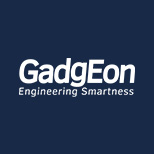For an IoT solution to be successful in an organization, it is indispensable that the platform fulfills some conditions. These conditions are the basic characteristics that have to be supported by any IoT platform. This article is going to examine the most important of these features.
Security: Every IoT platform needs to consider security as the most crucial issue. In this context, even minor deviations can increase the vulnerability of both the business and client data, concerning cyber threats. Here, the platform must take care of the security of data as well as the communication routes.
Scalability: Usually, an organization would witness the expansion of its business, with time. And, the IoT solution that has been designed in the company’s initial phase should be scalable. The platform must be able to keep pace with the business growth. It shouldn’t lag in solving things that are incidental when the scope of the operations expands.
Reliability: The developers of the IoT solution are entailed to make sure that it can respond to contingencies fast. Whenever there are issues like server breakdown, the platform should be in a position to rectify them as quickly as possible.
Interoperability: The IoT solution of a business should be able to get integrated with other platforms, devices, and networks. It’s only then that the purpose of deploying the IoT platform can be realized.
Modularity: When a company is deploying the IoT solution, modularity is another pivotal aspect that can’t be ignored. A platform supporting modularity ensures that diverse business needs can be met in a fairly simple manner. Here, there are several modules, with each one having a specific feature.
Connectivity: Connectivity facilitates interactions between different objects, with these interactions contributing to the overall intelligence of the IoT system. Access is gained to several networks and this opens up new and prospective markets for the business.
Data volume: It will not be sufficient if the IoT platform is confined just to interlinking devices, applications, and networks. The platform needs to have the capacity to take in, process, and store an enormous volume of data.
Extensibility: The Internet on Things platform has to possess the capability of handling varied kinds of data. The platform is necessitated to be compatible with both the organized and also the unorganized forms of data.
Ecosystem integration: The software development kits, the application programming interfaces and the gateways of an IoT platform have to facilitate the integration of third-party systems/applications. Depending on the precise requirements, the platform must support extra interfaces, dashboards, and a portal, too.
Data analysis: In contemporary times, data is considered to be synonymous with money. Hence, the IoT platform has to provide flawless data analysis. It is advisable that machine learning is made an integral element of the platform, to make sure that the company can convert data into earnings.
Data monitoring: The IoT platform should consistently keep track of the data of several connected devices and groups. The system must also generate the related details, which would assist the company in identifying specific patterns of user behavior. This is going to be very helpful in designing future business strategies.
The topic of IoT platforms is an exhaustive one where all its facets can’t be covered in a brief write-up. Here, only the most common features of the platform have been focused upon.


